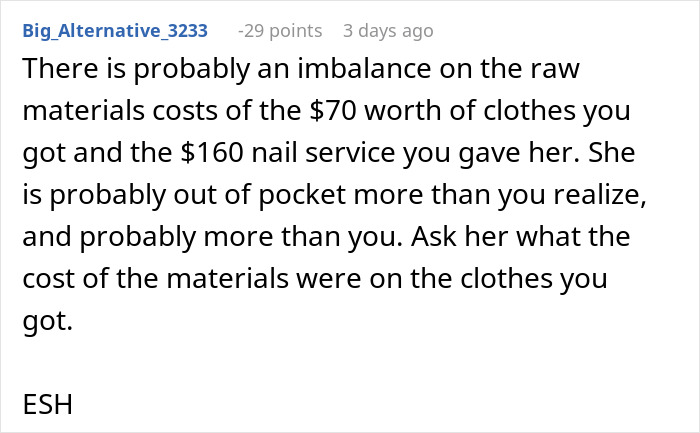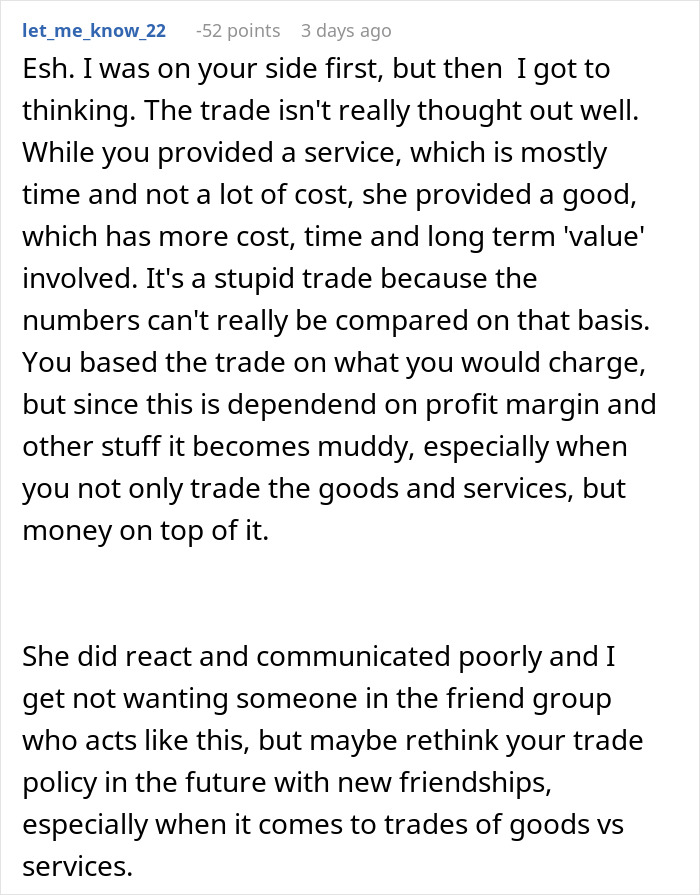Swapping services or goods with family and friends, such as homegrown produce, clothes, babysitting and hairstyling, is a great way to save money and foster community. But since bartering is a delicate art, it requires some ground rules to ensure that no one feels wronged in the exchange.
These girlfriends had it all figured out and their trades were going smoothly. Until a new member joined them and tried taking advantage of their generosity, which resulted in her getting kicked out of the friend circle.
Scroll down to find the full story and conversation with Shang Saavedra, a financial expert and CEO of Save My Cents, who kindly agreed to tell us more about exchanging skills and goods with others.
Exchanging skills and goods with family or friends is a great way to save money and build stronger bonds

Image credits: dmytro_sidelnikov / Freepik (not the actual photo)
However, this woman, who was new at bartering, did their friends dirty, for which she got kicked out of the friend group
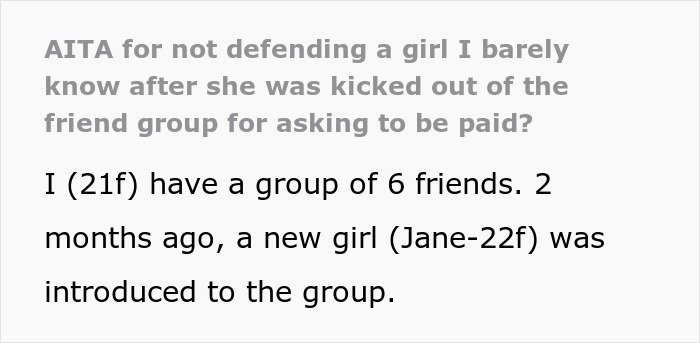
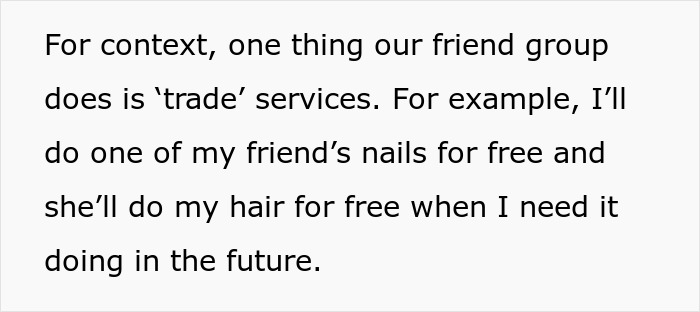

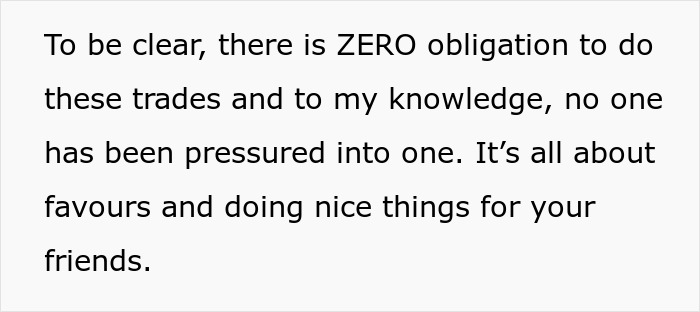

Image credits: freepik / Freepik (not the actual photo)
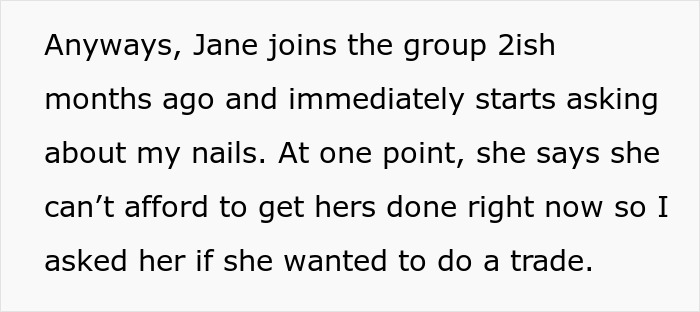

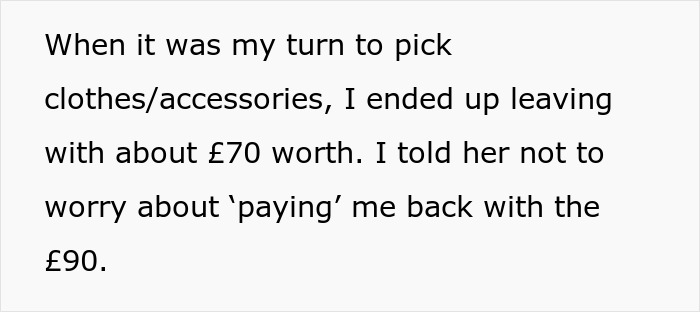

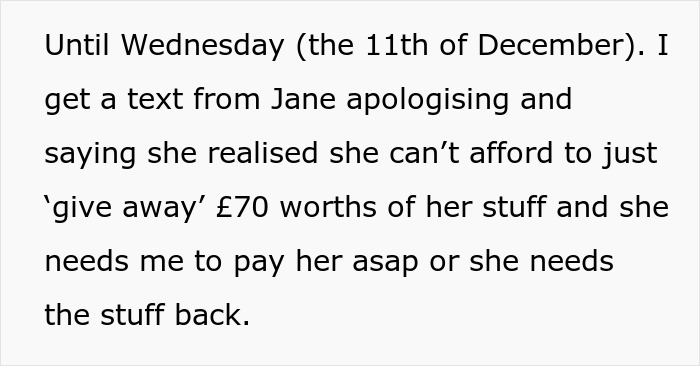

Image credits: Alexander Grey / Unsplash (not the actual photo)
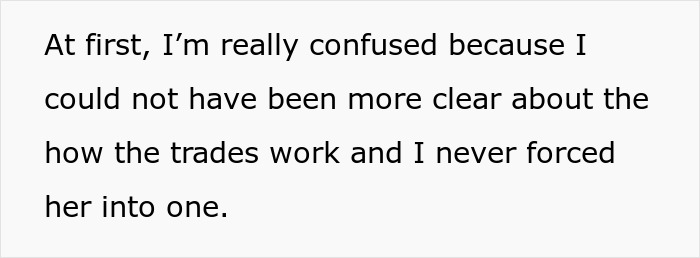
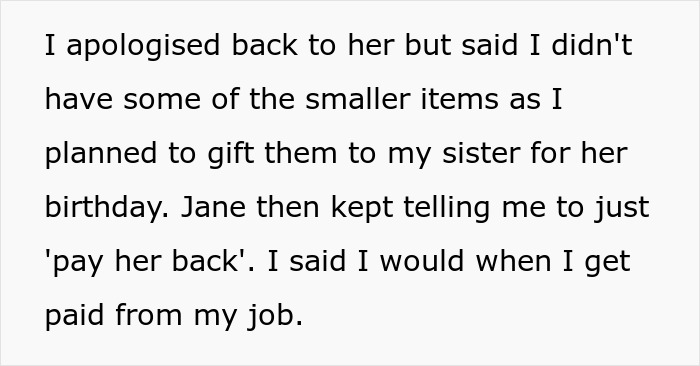
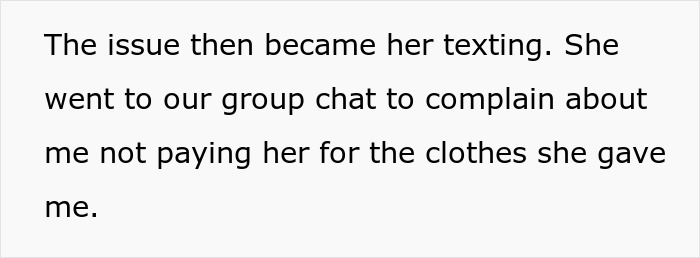


Image credits: freepik / Freepik (not the actual photo)
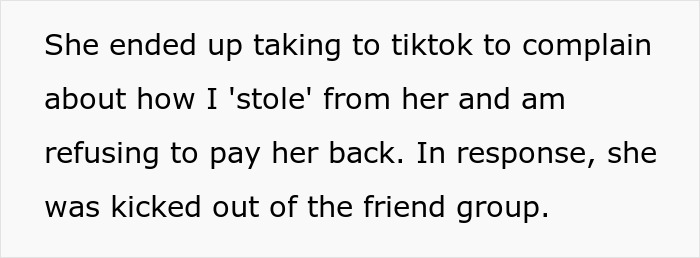
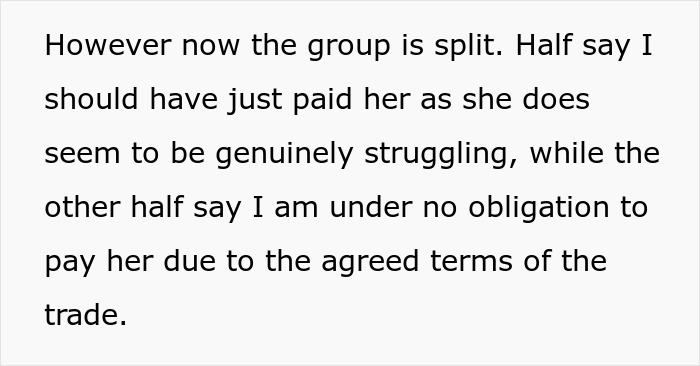


Image credits: throwRA12p

Image credits: user20857916 / Freepik (not the actual photo)
“I think it’s a very creative and highly underutilized way of gifting”
According to Investopedia, bartering is “the exchange of goods and services between two or more parties without the use of money.” A simple example of this would be a hairdresser giving a friend a haircut for a new set of nails (like in this story).
There’s really no limit to what can be traded. Beauty, digital, home maintenance, childcare, carpooling, tutoring services and things like books, food, meals and clothes—almost everything is on the table, as long as parties agree on the terms of exchange.
“The main benefit is that it doesn’t cost either of you upfront money, as you’re trading your time or your existing things for something else. I think it’s a very creative and highly underutilized way of gifting,” says Shang Saavedra, a financial expert and CEO of Save My Cents. It can also create a stronger bond between trading partners and even build a professional network when it comes to businesses.
Such a way of “selling and buying” is the oldest form of commerce that dates back to when money didn’t exist. Nevertheless, it still comes in handy today, especially when financial troubles strike. Just like what happened during the 2008 financial crisis and the COVID-19 pandemic, which caused economic uncertainty among people and businesses.

Image credits: freepik / Freepik (not the actual photo)
Bartering can only be successful if it’s equal and satisfies both parties
However, bartering isn’t just the exchange of skills and goods. It’s much more complicated than that. It involves quite a few ground rules and procedures that ensure the agreement is fair and no friendships, relationships, or reputations are scathed.
The first step towards trading is to figure out what services or goods you can offer others and put a price tag on them. Such a deal can only be successful if it’s equal and satisfies both parties, which can happen when skills or items bartered are realistically valued. “There has to be some valuation involved,” agrees Saavedra.
Then identify what you’re looking for in an exchange and try finding people to trade with. It can be anyone from your family, friends, colleagues or even people online. Websites like Craigslist.com, Swapace.com, and BarterQuest.com are full of individuals who would like to participate in a cashless swap.
“For example, most recently a friend offered to buy my book. She owns a skincare line. I offered her two of my books in exchange for skincare that would have cost me the same as my two books to purchase at retail. Putting a price tag on it does help make things more fair,” shares Saavedra.
In general, she would recommend avoiding bartering with newly formed friendships. However, if you do make such an agreement with them or people you don’t know well enough, it might be a good idea to put everything in writing. It should involve the details or goods that the barter involves, the date and what work needs to be done. And you’ve got yourself a valuable deal without spending a penny!
Some readers believe that the new girl is wrong in this situation

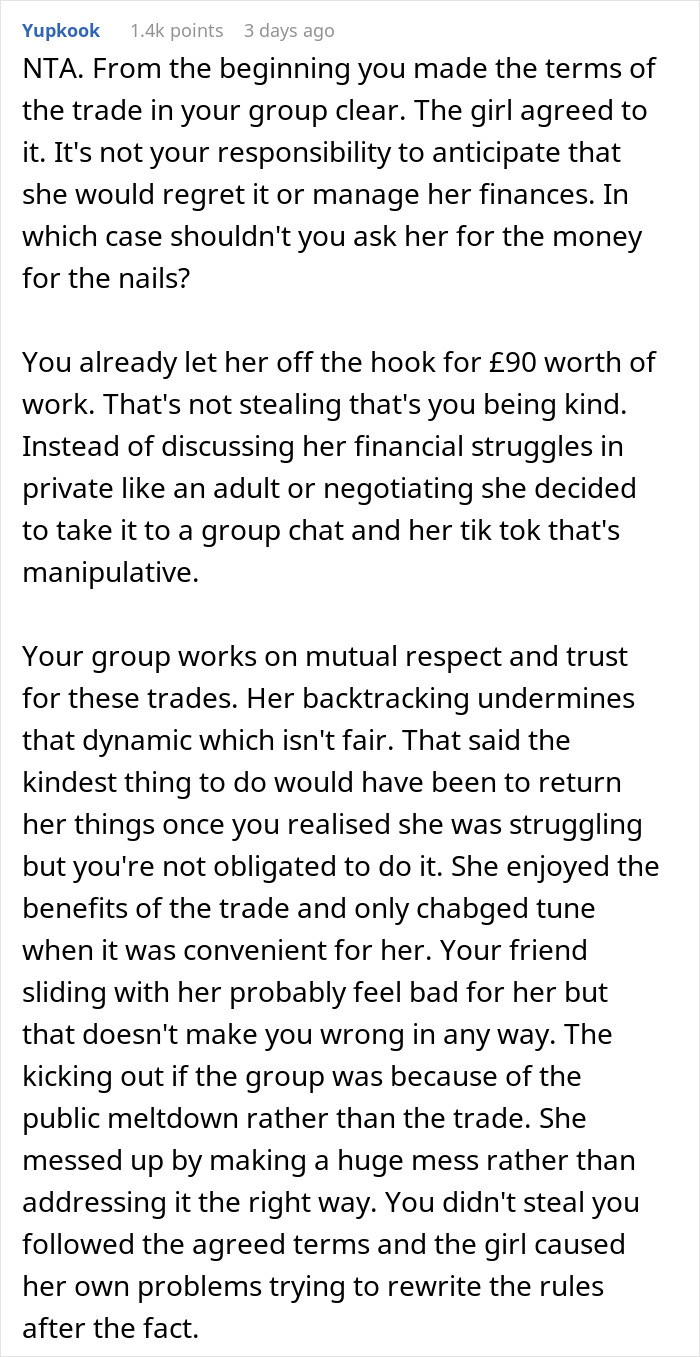
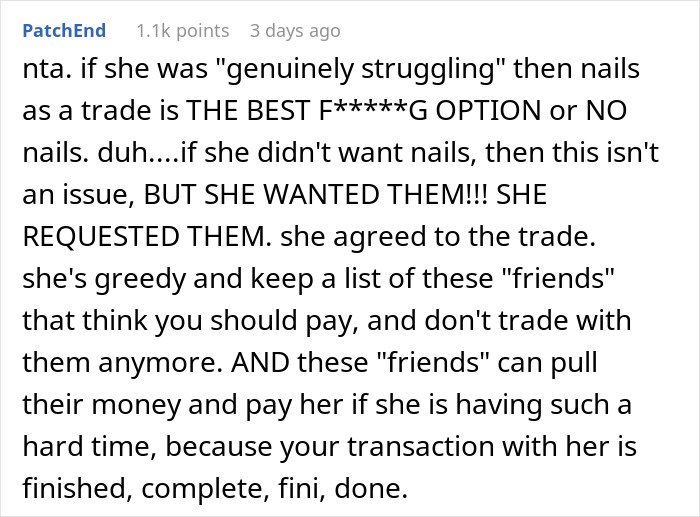

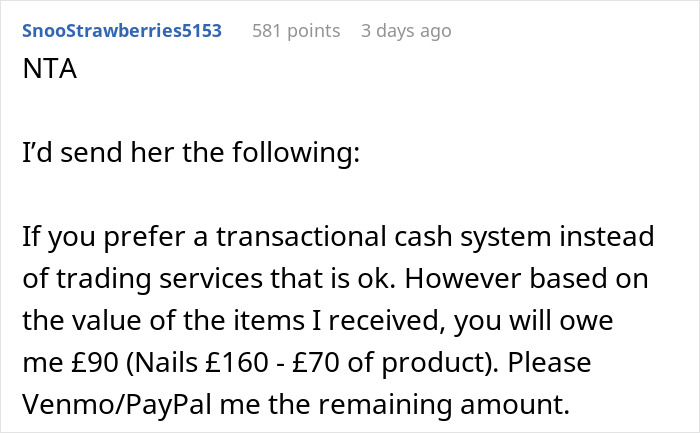
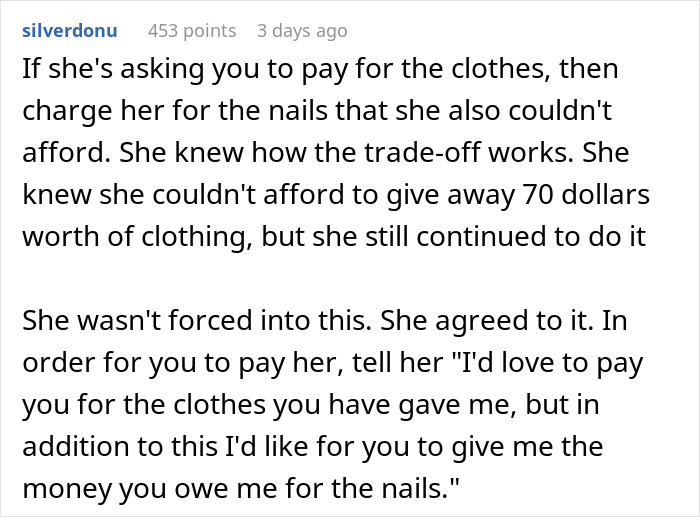
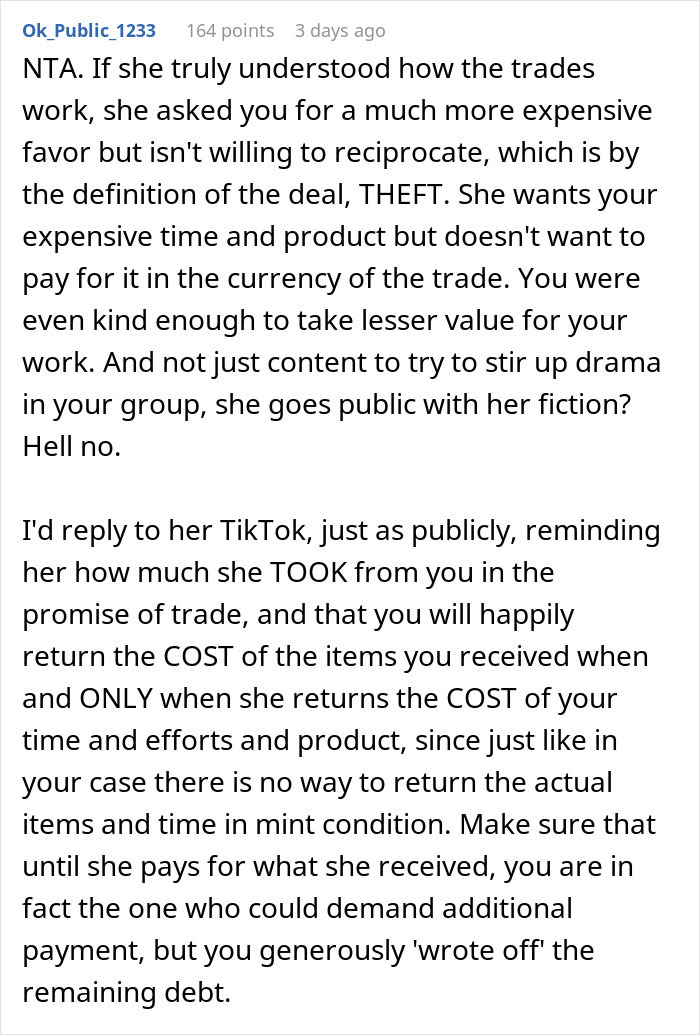

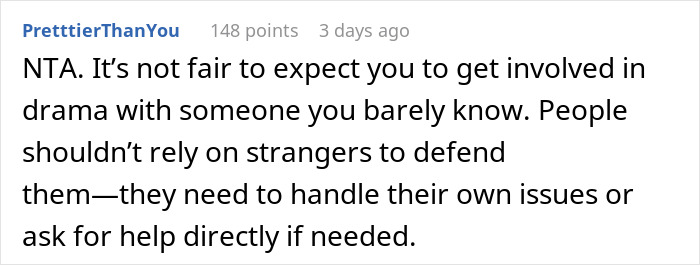
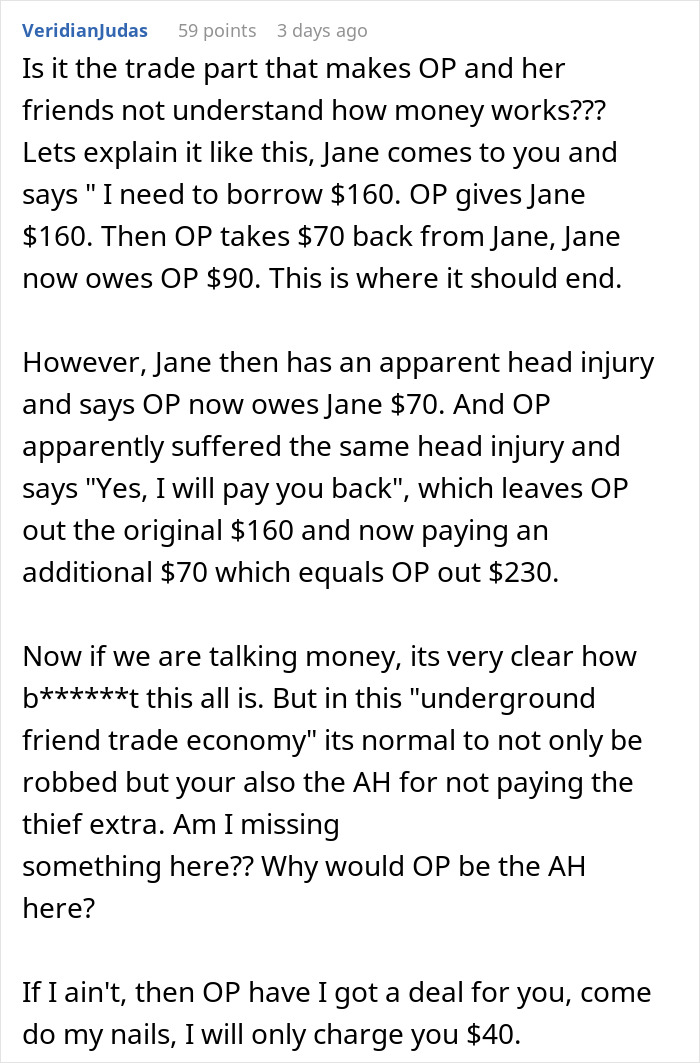

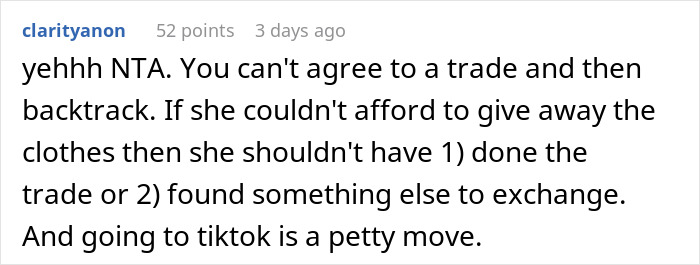
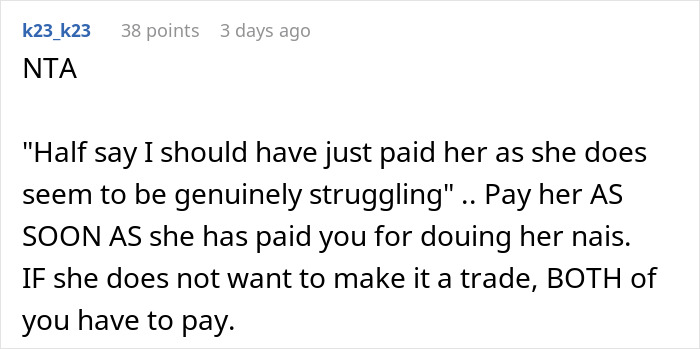

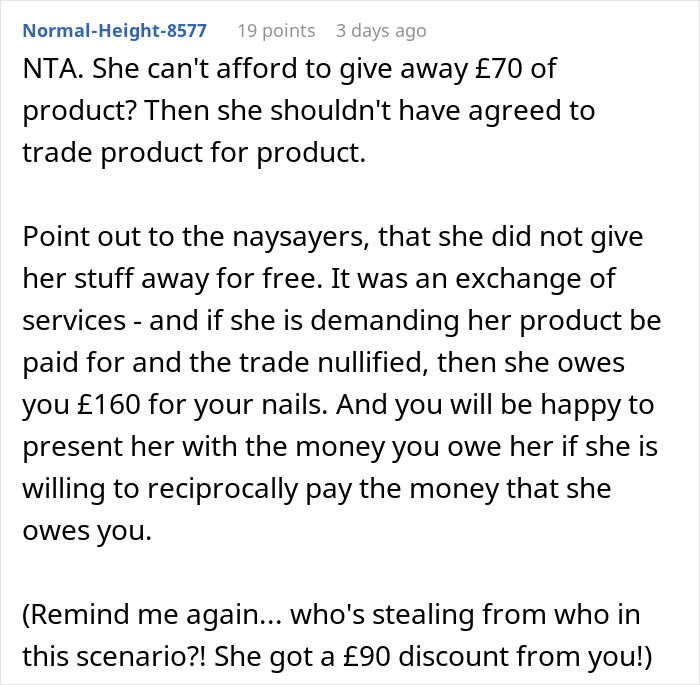



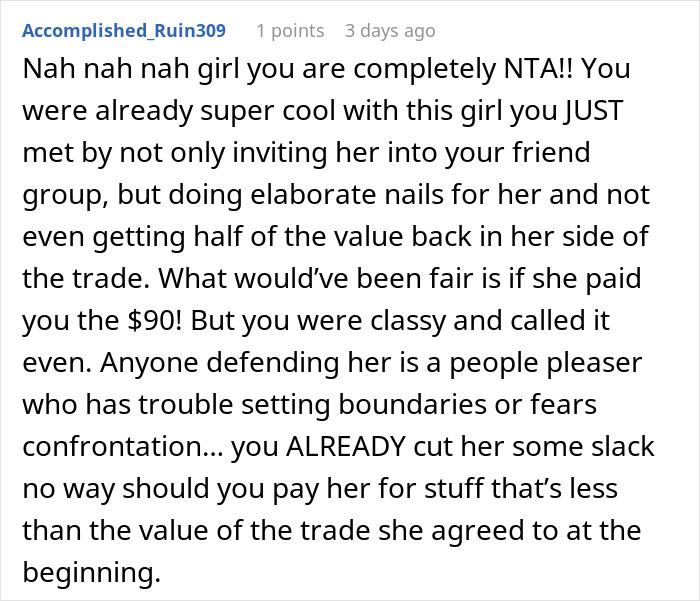
While others thought it was the fault of both women




